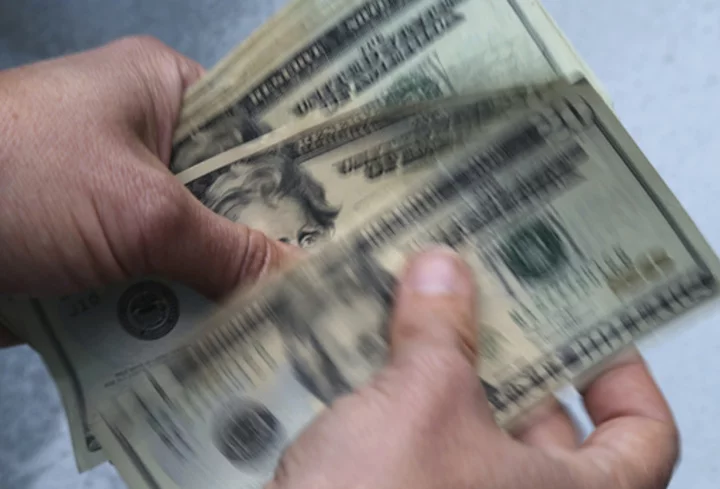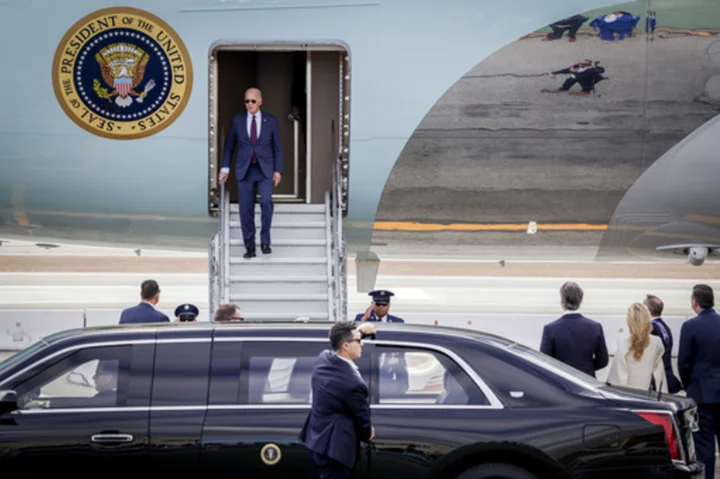TRENTON, N.J. (AP) — A bill to end smoking in Atlantic City's casinos that appeared headed for its first vote Thursday was delayed yet again when Democratic lawmakers said they did not have enough votes to advance it.
They also said they would listen to alternatives proposed by the casino industry including enclosed smoking rooms in which no employee would be forced to work.
That infuriated over 100 casino workers who packed a hearing room in the state Capitol, convinced that after nearly three years, their state representatives were ready to start the smoking ban on its way to approval.
“It's incredible that we're here begging again to have the same thing everyone else has,” said Lamont White, a dealer at the Borgata and a leader of the drive to end smoking in Atlantic City's nine casinos.
“We have to endure hours on the job with secondhand smoke in our faces without the ability to turn away,” added Nicole Vitola, another Borgata dealer active in the anti-smoking effort.
New Jersey's law banning smoking in public businesses specifically exempts Atlantic City's casinos.
Sen. Richard Codey, a Democrat who previously served as governor, said the compromise was enacted under his tenure as the state's top elected official as the price for getting a smoking ban for the rest of the state through the Legislature.
“It never should have happened that way,” he said Thursday. “It's time.”
But Sen. Joseph Vitale, chairman of the Senate health committee, said the measure was one vote short of the number required to move it forward Thursday. He apologized to workers who made the 180-mile (290-kilometer) round trip from Atlantic City, promising a vote on the bill “sooner rather than later.”
Vitale said he favors a vote on the bill as originally written, which would ban smoking in the casinos, which is currently allowed on 25% of the casino floor.
But others, including Sen. Fred Madden, said some lawmakers want to hear more from the casino industry, which he said has suggested an 18-month phase-in of a smoking ban to enable them to set up enclosed smoking rooms and additional air treatment processes.
“There could be a compromise put on the table that could bring the votes ... that will ensure it passes,” he said. “I feel extremely confident that people will lose their jobs” under a total smoking ban.
“I didn't sign up to this to start taking people's livelihoods away,” Madden said. “But it's extremely important to put health first and that's what I'm trying to do here.”
The Casino Association of New Jersey did not respond to a request for details on its proposals to lawmakers.
A group representing dealers called the smoking rooms proposal “an absurd idea” that every legislator should reject.
Support for a casino smoking ban is widespread among New Jersey lawmakers, with a bipartisan majority in both chambers, and Democratic Gov. Phil Murphy has repeatedly said he will sign it if passed.
It's a hot issue in other states as well. Chris Moyer, a spokesperson for the Atlantic City casino workers who want a smoking ban, said similar movements are under way in Pennsylvania, Rhode Island, Virginia, Kansas, Michigan and Nevada, and noted Connecticut's casinos are already smoke-free. Shreveport, Louisiana ended a smoking ban in its casinos in June.
The bill would close a loophole in the state’s 2006 indoor smoking law. That measure was written specifically to exempt casinos from bans on smoking indoors. Currently, smoking is permitted on 25% of a casino floor in Atlantic City.
The casino industry opposes a smoking ban, saying it would lose customers and revenue if smoking were banned while still being allowed in casinos in nearby states.
“We're not here to debate whether cigarettes are healthy,” said Christina Renna, president of the Chamber of Commerce Southern New Jersey. “We know they are not. We are here to debate whether casinos will have to lay off individuals or shutter altogether if a smoking ban goes into place.”
But Las Vegas-based C3 Gaming says many casinos elsewhere that have banned smoking are thriving financially, including casinos near Washington, D.C., and Boston, and in Maryland.
The issue is among the most divisive in Atlantic City, where even though casino revenue matched its all time high of $5.2 billion last year, only half that amount was won from in-person gamblers. The other half was won online and must be shared with third parties including tech platforms and sports books.
Just three of the nine casinos — Borgata, Ocean and Resorts — surpassed their pre-pandemic revenue levels in terms of money won from in-person gamblers last year.
___
Follow Wayne Parry on X, formerly Twitter, at www.twiter.com/WayneParryAC









